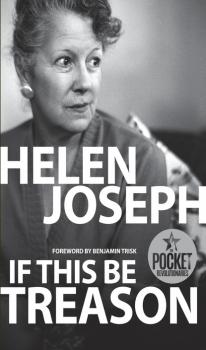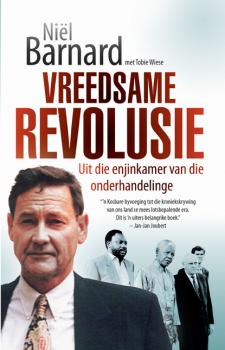ТОП просматриваемых книг сайта:
Социальная психология
Различные книги в жанре Социальная психология, доступные для чтения и скачиванияАннотация
Helen Joseph, founding member of the ANC’s ally, the Congress of Democrats, was one of the main organisers in the Women’s March of 9 August 1956. Arrested on a charge of high treason in 1956, and banned the next year, Helen suffered constant persecution. The first person in South Africa to be placed under house arrest, she survived several assassination attempts. In this personal account, Joseph writes about enduring the Treason Trial – one of the longest and most important trials in South African history, where she stood accused along with Nelson Mandela and Walter Sisulu. With disarming honesty, she shares stories of the women’s prison, the behind-the-scenes discussions with their defence team, the constant daily humiliations, but also their perseverance and small triumphs. This book, originally banned and not available for decades, adds a vital dimension to our understanding of South Africa’s recent history.
Аннотация
Investigative journalist Jacques Pauw exposes the darkest secret at the heart of Jacob Zuma’s compromised government: a cancerous cabal that eliminates the president’s enemies and purges the law-enforcement agencies of good men and women. As Zuma fights for his political life following the 2017 Gupta emails leak, this cabal – the president’s keepers – ensures that after years of ruinous rule, he remains in power and out of prison. But is Zuma the puppet master, or their puppet? Journey with Pauw as he explores the shadow mafia state. From KwaZulu-Natal and the Western Cape to the corridors of power in Pretoria and Johannesburg – and even to clandestine meetings in Russia. It’s a trail of lies and spies, cronies, cash and kingmakers as Pauw prises open the web of deceit that surrounds the fourth president of the democratic era.
Аннотация
South African politics is riddled with delusions. Many common political arguments come pre-packaged in an old and dusty box – but the self-evident truths are not, in fact, so indisputable. Sizwe Mpofu-Walsh sets out to dismantle that box. He argues that free education is far from impossible, the ANC's liberation narrative is too idyllic to swallow, land reform is not the first step to chaos, and the media is not free… In this incisive, informed book we find not only challenges to commonly held opinions, but optimism about South Africa's future, and solutions to old problems. A fresh perspective on South African politics.
Аннотация
In die vroeë 1990's is Suid-Afrika op 'n mespunt. Nelson Mandela is uiteindelik vry, maar 'n vreedsame politieke oorgang lyk byna onmoontlik. Links én regs staan gereed om die wapen op te neem. Te midde van dié dreigende geweld, met die land se toekoms op die spel, kom die grootliks onvoorbereide en koerslose NP-regering teen die ANC te staan by Kodesa. As hoof van die Nasionale Intelligensiediens (NI) is Niël Barnard sentraal tot dié onstuimige proses, wat telkens byna ontspoor. Barnard was daar die dag toe die altyd-kalm Nelson Mandela sy humeur verloor en teen FW de Klerk begin uitvaar. Hy het eerstehands beleef hoe die morele hoëgrond deur die NP se vingers glip en die ANC die oorhand kry. Dié boek verskaf Niël Barnard se indringende blik op dit wat agter die skerms afgespeel het by Kodesa. Hy onthul ook hoe vertrouensbande tussen die ANC en NI gesmee is tydens geheime ontmoetings in Europese hotelkamers, en skryf oor sy wedervaringe in Moskou saam met die Russiese KGB.
Аннотация
It is the early 1990s and South Africa is on a knife-edge. Nelson Mandela is free at last, but a peaceful political transition looks virtually impossible. Both sides of the political divide, the left and the right, are poised to take up arms. In the midst of this threat of violence, with the future of the country at stake, the largely unprepared and rudderless NP government faced the ANC at the negotiation table at Codesa. As head of National Intelligence (NI), Niël Barnard was central to this turbulent process, which was almost derailed several times. Barnard was there the day the ever-calm Nelson Mandela lost his temper and tore into FW de Klerk with a verbal attack. He experienced first-hand how the moral high ground slipped through the NP's fingers and the ANC gained the ascendancy. In this book, Niël Barnard provides a penetrating look at what happened behind the scenes at Codesa. He also reveals intriguing details of top-secret meetings between the ANC and the NI in hotel rooms in Europe, and writes about his surreal encounters with the Russian KGB in Moscow.
Аннотация
What are the real roots of the student protests of 2015 and 2016? Is it actually about fees? Why did the protests turn violent? Where is the government while the buildings burn? Former Free State University vice-chancellor Jonathan Jansen delves into the unprecedented disruption of universities that caught South Africa by surprise. In frank interviews with eleven of the VCs most affected, he examines the forces at work, why the protests escalate into chaos, and what is driving – and exasperating – our youth. This urgent and necessary book gives us an insider view of the crisis, tells us why the conflict will not go away and what it means for the future of our universities.
Аннотация
'Bending the Rules' is a colourful collection of anecdotes from Rafique Gangat’s extraordinary life. South Africa’s first diplomat of colour, Gangat first worked for Foreign Affairs under the NP and then for the ANC government, straddling the transition.This book documents Gangat’s battles against bigotry and prejudice, but also includes a healthy dose of sex, drugs and rock ‘n roll: illicit liaisons across the colour bar, experiments with dagga, and ground-breaking ventures in music and radio.
Аннотация
When Jacob Zuma retires to Nkandla, what will be left behind? South Africa has been in the grip of the ʻZunamiʼ since May 2009: Scandal, corruption and allegations of state capture have become synonymous with the Zuma era, leaving the country and its people disheartened. But Jacob Zuma’s time is running out. Whether he leaves the presidency after the ANC’s national conference in 2017, stays on until 2019, or is forced to retire much sooner, the question is: what impact will his departure have on South Africa, its people and on the ruling party? Can we fix the damage, and how? Ralph Mathekga answers these questions and more as he puts Zumaʼs leadership, and what will come after, in the spotlight.
Аннотация
"We must dare to invent the future. Everything man is capable of imagining, he can create." When Thomas Sankara gained power in Burkina Faso in 1983, he saw his first task as expunging the effects of colonialism. A dedicated pan-Africanist, he believed that Africa could sustain itself. He rejected all foreign aid and nationalised land and mineral wealth. This book brings us Sankara in his own words, with a selection from his writings and interviews from 1983 until his tragic and untimely assassination in 1987. An African leader and intellectual in many ways ahead of his time, Sankara's ideas are as current today as when first formulated.
Аннотация
TWO WORLD-RENOWNED revolutionary icons, Nelson Mandela and Fidel Castro, meet for the first time in Cuba in 1991, and speak together at a rally. Their speeches from that historic day are contained in this book. Mandela praises Cuba’s assistance to incapacitate the US-backed South African army, accelerating the end to apartheid. Castro in turn acknowledges the particular contribution of South Africans to the world wide fight for freedom from oppression. Mandela and Castro regarded each other as mentors. The world regards them as heroes.










